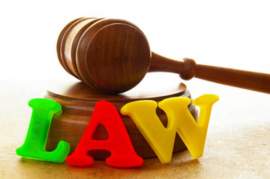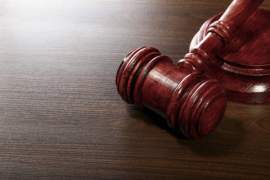
Judicial Controls
There are three separate branches of government within the United States that seek to create, enforce, and adjudicate when needed the laws of this country. There are three branches in order to achieve a level of control on agency power so no one agency gains too much power distorting the democratic system. The judiciary in this process is there to regulate agency power both internally and externally within the government. The judicial branch is designed to be insulated against political pressures allowing the judiciary to have an independent viewpoint.
Agency power has been abused in the history of the United States, yet the judiciary controls that are in place usually do a very good job in correcting these problems. There are different examples of agency power of the judicial branch of government. The courts can check the president’s actions. If the president is not behaving in accordance with the United States Constitution he can then be censured by the judiciary and if the grievance is so great even removed from office. The legislature which creates the laws that then is enforced by the executive branch usually falls under judicial review more often that the executive branch. The creation of laws needs to be in accordance with the tenets set forth in the United States Constitution. Agency power can be abused if the laws created reach outside the scope of what the Constitution defines as the reasonable limits of proper governance. In these cases the courts use their agency power to review the law and determine whether or not, case by case, the laws created by the legislature do in fact break the United States Constitution. While this may seem like a lot of power is given to the judiciary there are some important aspects to remember. Judges and the prosecutors that enforce the law are, in many ways, in a political vacuum. This is especially true for federal judges that do not need to run for elected office. Instead, in the case of federal judges, they are appointed through the executive branches agency power to set terms, in the case of the Supreme Court to life terms. His allows judges to operate within a political vacuum as the public may disagree with their decisions but not remove them from office by way of a vote. It Is their chief job to review the legality of each cased based on written laws. Beyond that scope a judge cannot do much more, certainly they cannot exercise the power agency power that either the legislature or the executive branch can employ. The courts also allow for appeals to be made if one party does not accept the judgment of a lower court. This is a form of an internal check on agency power. There is the possibility that a lower court can rule in one manner and then the next, higher court, can rule in another. This will usually lead to a third appeal and possibly appeals all the way to the Supreme Court. The idea of this internal agency check on power is to allow the parties in a court cases on both sides to have the ability to argue their position at a variety of levels ensuring that their position is heard.
Agency power within the United States is divided in such a way that ensures the maximum balance of power. The judiciary is largely responsible for making sure everyone plays by the rules. While other branches may enforce the law it is up to the judiciary to see whether the laws are constitutional and the charges brought against a defendant are actually valid.



















